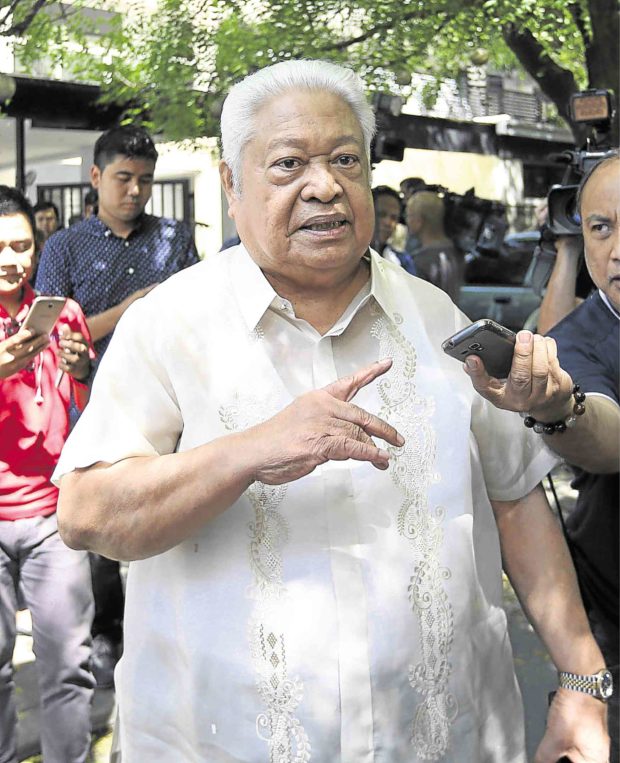
Rep. Edcel Lagman
President Duterte’s proclamation placing Mindanao under martial law cannot be extended anymore because its mandate to suppress the Marawi siege had already expired, opposition lawmaker Rep. Edcel Lagman argued before the Supreme Court.
In a 32-page memorandum, antimartial law petitioners from the “Magnificent Seven” bloc in the House of Representatives said Mr. Duterte’s declaration that Marawi City was liberated from Islamic State-inspired terrorists on Oct. 27, 2017, as well as the cessation of military combat operations, rendered Proclamation No. 216 functus officio.
Functus officio
Functus officio means the proclamation’s mandate had expired because its purpose of addressing the “violent acts committed by the Maute terrorist group” was already accomplished.
Maute remnants
“There is no more proclamation to be further extended,” read the memorandum.
Lagman argued that the remnants of the Maute fighters and their Abu Sayyaf allies “have no capacity to continue or resuscitate a crushed rebellion or launch a new one.”
No existing rebellion
Antimartial law petitioners contended that no actual rebellion existed in Mindanao to justify a second extension of martial law until Dec. 31, 2018.
Martial law, which was first declared on May 23, 2017 for an initial 60-day period, was extended in July until Dec. 31, 2017 because of continued violence at the time.
But, Mr. Duterte justified the second extension by claiming the remnants of the defeated terror groups were trying to regroup by actively recruiting Moro youths for another possible attack in Mindanao.
He also invoked the bogey of the country’s 48-year-old communist insurgency for the first time.